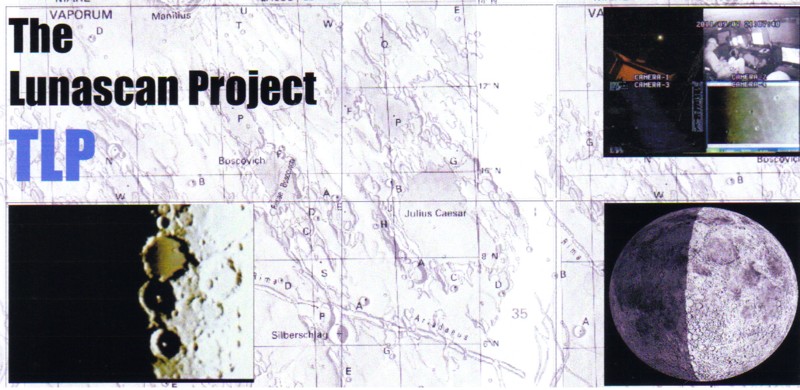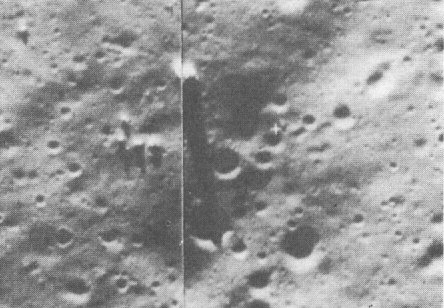 presents
presents

LO2-61H3
|
"Q. Are copies of the
"lunar tower" pictures referred to in your April (
1971) issue available from NICAP? "A. NICAP does not have copies of these pictures available for general distribution. They were taken in November1966 by NASA's Lunar Orbiter spacecraft (not Ranger, as stated by NICAP's interviewer) and are available only from NASA. The principal photograph showing the "towers" is picture No. 86-H-758, ...... Scientists now believe that the lunar features casting the strange shadows are not as tall as originally assumed and therefore cannot properly be described as "towers." They are probably more like cubes or pyramids in shape. The shadows appear elongated because the terrain on which they fall slopes downward, away from the protuberances, distorting the shadows' true shapes." In 1995 I pondered these
questions: Where were these towers on the Moon? Were
they on the nearside or the far side? On what Rukl
Chart (lunar section) did they fall and what were they
near? And most of all: What were they? Richard
Hoagland had never mentioned them, yet he HAD
mentioned something similar, the Shard. Were
these objects the same things or something else? And,
even more interesting, were these alleged artifacts in
the same area or region? It didn't take us too long to
find out. After 24 years the "Blair Cuspids" were
"re-discovered". With the help of the VGL group (Lan
Fleming, Jon Floyd, Mike Lomax, and Bill Kohler) and
David Williams of NSSDC (National Space & Science
Data Center), the Lunascan Project was able to solve
the initial mystery of WHERE these towers were
located, but many new questions and mysteries cropped
up. Maybe the explanation put forth in 1971 was a
little too simple an answer. First of all, sometime later NASA
had changed the ID numbers of all orbiter photos.
LO2-61-H3 was the new number of the image, replacing
86 H 758. It was taken by Lunar Orbiter II. After VGL
got involved in our research, and I had been working
with David Williams of NSSDC (National Space &
Science Data Center) at Greenbelt, MD, we discovered
that there was another image. Williams told me that
the next image on the orbiter's footprint was
LO2-62-H3, and it included an overlap which showed the
cuspids!!! This directory leads to the full
story of the rediscovery of The Blair Cuspids in 1995,
the attempt to get a private company to do a flyover
ten years later, and now the hopes of finding hi-res
images of the site from the Lunar Reconnaissance
Orbiter. One member of our imaging team, Ned Haskin, used
LRO's zoomable moon page to get the BC's coordinates,
hoping that the spacecraft had passed over that area.
The coords are at 5.1 N lat, 15.5 E long. Since this is
the area near the Apollo 11 landing site and the cuspids
were found while doing a site selection survey by Lunar
Oriter 2, high resolution images should be in that
collection.
http://wms.lroc.asu.edu/lroc#damoon
But first, the story.....
|